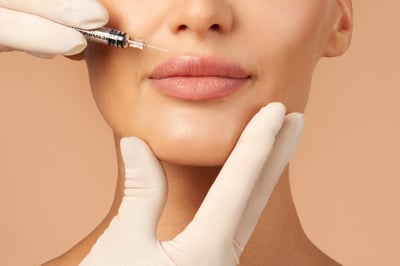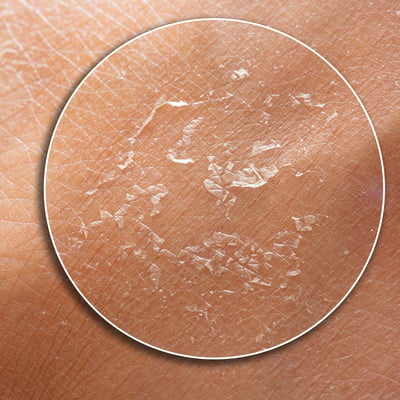
Anticipating breast surgery—for any reason—comes with many emotions. You may bey excited about finally being finished with cancer treatments, or about having the cancer removed from your body. Or, you may be looking forward to having larger or smaller breasts . It’s also common to be afraid of the pain, and to wonder whether you will be able to handle it. You might also feel a sense of relief knowing that once you are healed, you’ll be able to get back to activities you once loved.
Before you have breast surgery, it’s important to keep in mind that your healing journey might be different than you expect—and will come with even more emotions. Every patient recovers differently, both physically and emotionally. Having an idea of what lies ahead can prevent frustration and ensure you take the time to heal your mind and body.
Physical recovery: What to expect after breast surgery
Some breast surgeries require an overnight stay at the hospital while some are outpatient. You will receive post-op instructions such as how long to wear a compression bra, how often to take pain medications, and how to care for your drains (if you have them). You will also need a friend or family member to drive you home.
Days 1-4
The most important thing in the first days of recovery is to have a quiet area where you can rest. Many patients choose to recover in their bedroom with essentials like:
- Extra pillows and blankets for comfort
- Plenty of water to stay hydrated
- Healthy snacks like fruit and granola bars
- Entertainment such as books or movies
- Plenty of entertainment (movies, books, music) to combat boredom
You should also have someone at home with you to provide healthy, nutritious meals and ensure you take your medications as scheduled.
Days 5-7
Typically, this is the most uncomfortable phase of breast surgery recovery. It’s common to experience bruising and swelling around the breasts, as well as extreme discomfort. It’s essential to stay on schedule with pain medication to stay as comfortable as possible.
At this time, you should be getting up and walking around the house to facilitate blood flow and help prevent blood clots. You will still need to rest, so listen to your body.
1-3 weeks after surgery
Bruising, swelling and discomfort have usually subsided at this point and it’s okay to try doing light household chores. Many women are able to return to work within one to two weeks after breast surgery. If your job requires heavy lifting or strenuous physical activity, you may need to take additional time off.
4-6 weeks after surgery
You can probably begin adding more strenuous activity back into your routine, but only after being cleared by your doctor. Low-impact cardio exercises are probably fine after 4 weeks, but you should refrain from heavy lifting and chest exercises until at least 6 weeks post-op.
Seeing final results
Even as pain subsides, keep in mind that it can take three to four months before seeing the final appearance of your new breasts. Residual swelling can linger and it takes a month or so for breast implants to settle into their proper position. You may feel great and be ready to go shopping for new bras and swimsuits, but it’s best to wait a few more weeks to see the full effects.
Complications
This is the part that not a lot of patients expect, but it’s good to be aware of the possibilities. You will want to stay in contact with your surgical team and let them know if any of these complications arise.
Infections
As incisions heal after breast surgery, they are vulnerable to bacteria. It takes about two to three weeks for skin to heal, and 10 weeks for internal stitches to dissolve. You will want to examine your wounds every day during that time and be aware of any of the following symptoms:
- Redness in the incision area
- Discharge coming out of the incision.
- The wound feels tender, swollen or warm to touch
- Feeling generally unwell with a fever
If your provider suspects an infection, you may need a course of antibiotics.
Seromas
Some patients develop a collection of fluid under the arm, in the chest wall, or in the breast after surgery drains are removed. It can also happen in the abdominal area if tissue was taken from there for reconstruction. The fluid pocket is called a seroma and it’s usually reabsorbed by the body within a few months.
However, some seromas can cause discomfort such as pain, pressure, or tightness and can even limit mobility — such as raising your arm above your shoulder. In this case, your medical team can draw off (aspirate) the fluid using a syringe and needle. If the fluid comes back, they may have to repeat the procedure several times.
Hematomas
Occasionally blood collects in the tissue surrounding the surgery site, causing swelling, discomfort, and hardness. It looks like a bruise. This is called a hematoma and like seromas, is usually reabsorbed by the body in a few weeks. But if the hematoma is especially large, it may need to be drained with a needle and syringe. If your provider is concerned the hematoma is bleeding, he may need to do a small surgery to remove it.
While friends, family, and support groups can help, talking to a mental health professional offers a safe space to share feelings without fear of worrying loved ones. Many therapists specialize in working with breast surgery patients and understanding the emotional challenges you’re going through.
Returning to “normal” life: Emotional healing after breast surgery
While it typically takes a couple of months to recover physically from breast surgery, don’t be surprised if life isn’t what you expected with your new breasts. Exhaustion is completely normal as your body continues to heal, and you may not feel like yourself. Many women experience mental and emotional side effects after breast surgery, such as:
Feeling isolated
Whether you had help during cancer treatments or neighbors and family brought meals during breast augmentation recovery, it can be hard when all of that stops. Other people won’t be able to see that you are still healing, and they may assume you are ready to get back to your normal routine. You may feel alone, like you are losing your safety net.
Instead of withdrawing, this is when it’s important to reach out to those who care about you. If you still need help or just need a shoulder to cry on, don’t hesitate to ask. Your doctor can provide recommendations for support networks that can make the transition easier, such as breast cancer survivor groups.
While friends, family, and support groups can help, talking to a mental health professional offers a safe space to share feelings without fear of worrying loved ones. Many therapists specialize in working with breast surgery patients and understanding the emotional challenges you’re going through.
Accepting your new breasts
Your new breasts will be beautiful, but they won’t feel like yours. The size and shape will be different. There will be scars that weren’t there before. And you may have little to no sensation in your nipples. Postoperative depression is normal for breast surgery patients, so it’s highly likely you’ll experience:
- Mourning; wishing you could have your old body back
- Regret at your decision to have the procedure, or the size or shape you chose
- Anxiety over swollen, bruised breasts because you can’t imagine how they will look when fully healed
- Difficulty sleeping, often associated with discomfort
- Missing your normal routine, such as working out or sexual activity
The truth is that your body will never be the same as before. Scars may not disappear. Feeling may not return. It may be a while until you enjoy intimacy. Discussing these concerns with women who have gone through breast surgery can help you realize you’re not alone, and that over time you will adjust to the new you.
Feeling disconnected from your partner
After breast surgery, you may feel a strain in your romantic relationship. Not only might you feel self-conscious of your new breasts, but your partner might not truly understand what you’re going through emotionally. You may not be interested in intimacy, and they may be afraid to touch you.
The best way to get through this time is by communicating honestly about feelings, readiness, and expectations. If either of you has a hard time talking, making an appointment with a counselor can get the conversation flowing and help you both to understand each other.
Healing will happen. It just takes time.
Breast surgery takes a toll on the mind and body — much more than anyone can see from the outside. But if you stay in touch with your doctor, seek support when it’s needed, and allow yourself to take time to heal, your new breasts will be well worth it. Your Forefront team will be here to guide you through your recovery, every step of the way.






